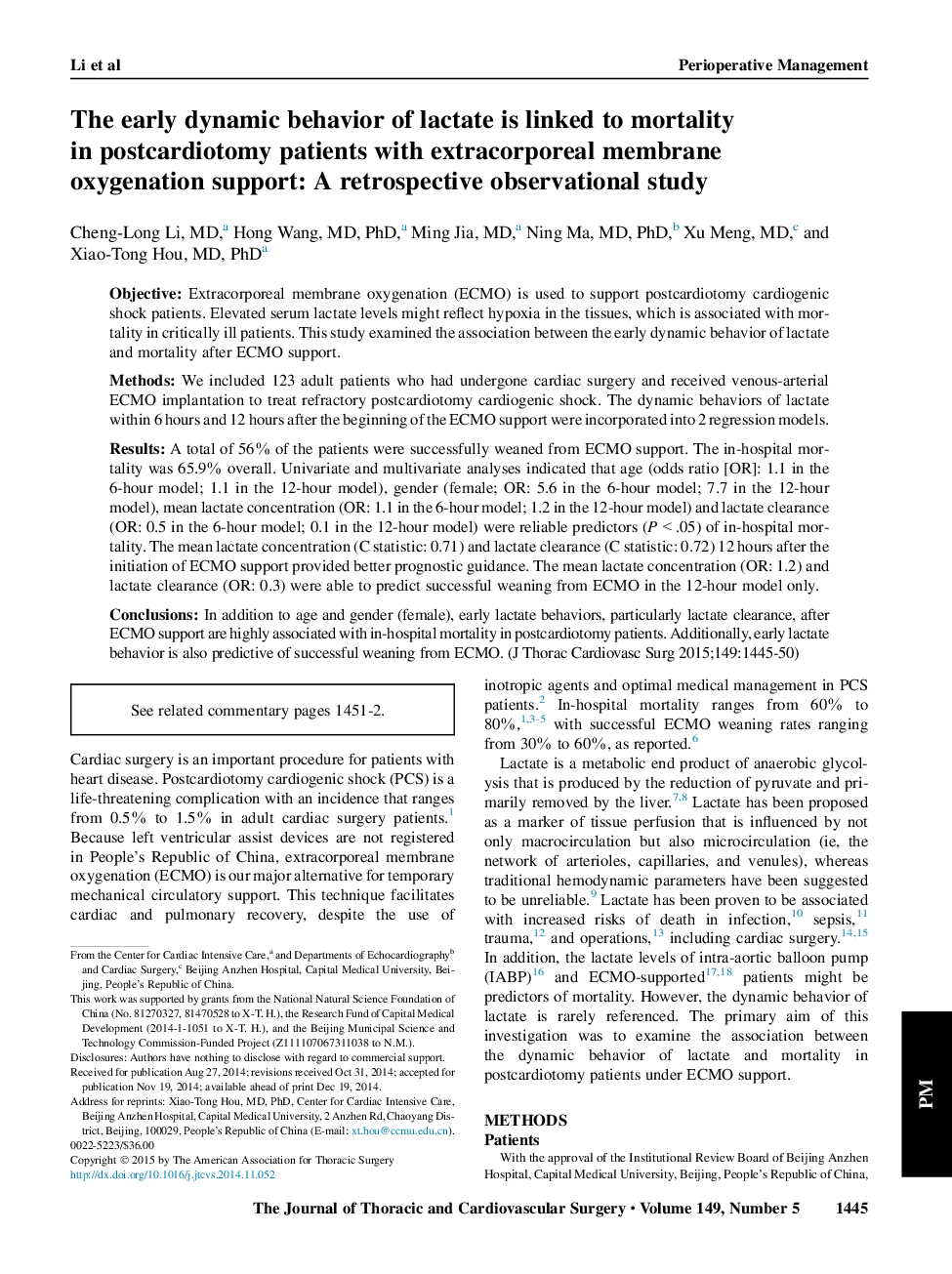| Article ID | Journal | Published Year | Pages | File Type |
|---|---|---|---|---|
| 2979594 | The Journal of Thoracic and Cardiovascular Surgery | 2015 | 6 Pages |
ObjectiveExtracorporeal membrane oxygenation (ECMO) is used to support postcardiotomy cardiogenic shock patients. Elevated serum lactate levels might reflect hypoxia in the tissues, which is associated with mortality in critically ill patients. This study examined the association between the early dynamic behavior of lactate and mortality after ECMO support.MethodsWe included 123 adult patients who had undergone cardiac surgery and received venous-arterial ECMO implantation to treat refractory postcardiotomy cardiogenic shock. The dynamic behaviors of lactate within 6 hours and 12 hours after the beginning of the ECMO support were incorporated into 2 regression models.ResultsA total of 56% of the patients were successfully weaned from ECMO support. The in-hospital mortality was 65.9% overall. Univariate and multivariate analyses indicated that age (odds ratio [OR]: 1.1 in the 6-hour model; 1.1 in the 12-hour model), gender (female; OR: 5.6 in the 6-hour model; 7.7 in the 12-hour model), mean lactate concentration (OR: 1.1 in the 6-hour model; 1.2 in the 12-hour model) and lactate clearance (OR: 0.5 in the 6-hour model; 0.1 in the 12-hour model) were reliable predictors (P < .05) of in-hospital mortality. The mean lactate concentration (C statistic: 0.71) and lactate clearance (C statistic: 0.72) 12 hours after the initiation of ECMO support provided better prognostic guidance. The mean lactate concentration (OR: 1.2) and lactate clearance (OR: 0.3) were able to predict successful weaning from ECMO in the 12-hour model only.ConclusionsIn addition to age and gender (female), early lactate behaviors, particularly lactate clearance, after ECMO support are highly associated with in-hospital mortality in postcardiotomy patients. Additionally, early lactate behavior is also predictive of successful weaning from ECMO.
